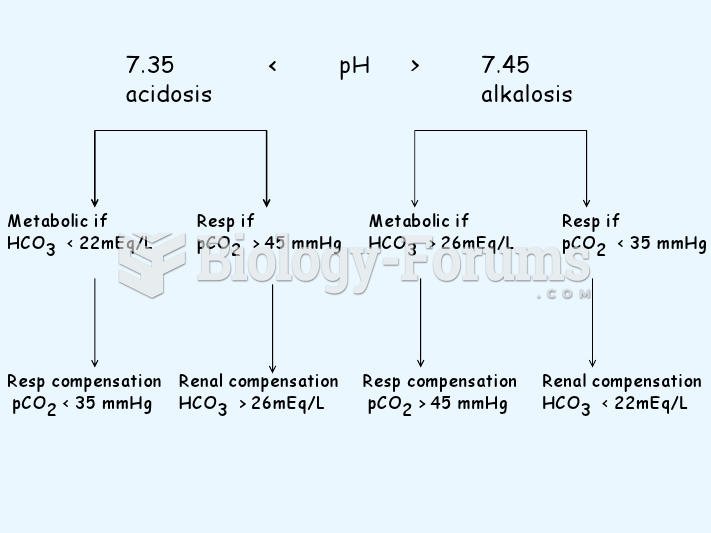|
|
|
The Romans did not use numerals to indicate fractions but instead used words to indicate parts of a whole.
According to the National Institute of Environmental Health Sciences, lung disease is the third leading killer in the United States, responsible for one in seven deaths. It is the leading cause of death among infants under the age of one year.
In the United States, an estimated 50 million unnecessary antibiotics are prescribed for viral respiratory infections.
Chronic marijuana use can damage the white blood cells and reduce the immune system's ability to respond to disease by as much as 40%. Without a strong immune system, the body is vulnerable to all kinds of degenerative and infectious diseases.
Your heart beats over 36 million times a year.







